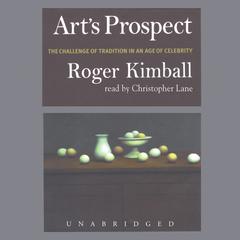 Play Audiobook Sample
Play Audiobook Sample
The Long March: How the Cultural Revolution of the 1960s Changed America Audiobook
 Play Audiobook Sample
Play Audiobook Sample
Quick Stats About this Audiobook
Total Audiobook Chapters:
Longest Chapter Length:
Shortest Chapter Length:
Average Chapter Length:
Audiobooks by this Author:
Publisher Description
The architects of America’s cultural revolution of the 1960s were Beat authors like Allen Ginsberg and Jack Kerouac, and celebrated figures like Norman Mailer, Timothy Leary, Eldridge Cleaver and Susan Sontag. In examining the lives and works of those who spoke for the 1960s, Roger Kimball conceives a series of cautionary tales, an annotated guidebook of wrong turns, dead-ends, and blind alleys.
According to Kimball, the revolutionary assaults on “The System” in the 1960s still define the way we live now, with intellectually debased schools and colleges, morally chaotic sexual relations and family life, and a degraded media and popular culture. While some may think of the 1960s as “the Last Good Time,” Kimball paints the decade as a seedbed of excess and moral breakdown
Download and start listening now!
"Very good non-fiction book on the 1960s & the radicals of that decade."
— Stephanie (4 out of 5 stars)
Quotes
-
“Terrific…We haven’t had a radical analysis like this—ever.”
— William F. Buckley Jr. -
Shuyun effectively dismantles the Maoist legends while remaining inspired by the marchers' courage.
— Booklist Starred Review -
“How deeply rooted are our nation’s cultural problems? What is the legacy of the 1960s? Where are America’s culture wars going? Few people take these important questions more seriously than Roger Kimball. And few write about them with such clarity and eloquence.”
— William J. Bennett, New York Times bestselling author and former Secretary of Education -
“Roger Kimball delivers a shrewd judgment…Its dissection of the ideas that coalesced into cultural revolution is superb.”
— Wall Street Journal -
“Kimball’s diagnosis is so powerful, so rigorous and devastating, that one who reads and reflects on The Long March can hardly be immune to its extraordinarily powerful testimony.”
— American Outlook -
“[Kimball] argues forcefully that the pernicious influence of the 1960s can still be felt…There’s a distinctly conservative crankiness to Kimball’s writing…yet this inclination can lead to fascinating, if arguable, insights about modern American culture.”
— Amazon.com, editorial review -
“Mr. Kimball clears away the underbrush of false history and shows what actually happened.”
— John Leo, writer and senior fellow, Manhattan Institute -
“Roger Kimball has produced a searching and comprehensive study that…shows the routinization of exciting ideals, and the power and impotence of ideas.”
— Harvey C. Mansfield, William R. Kenan, Jr. Professor of Government at Harvard University
Awards
-
A Times Literary Supplement Best Book of 2000
The Long March Listener Reviews
-
" Judgmental and opinionated with few credible facts other than those that "support" his one side of the argument. Perhaps the most biased book I have ever read. For fans of FOX News only. (I try to read many different angles to any argument but this was quite simply, juvenile). "
— Cyrus, 4/9/2013 -
" british conservatives are so much more interesting - and literate. "
— P.S., 7/5/2012 -
" Truly excellent. "
— Ben, 9/10/2009 -
" british conservatives are so much more interesting - and literate. "
— P.S., 8/21/2007
About Roger Kimball
Roger Kimball is editor and publisher of The New Criterion and an art critic for the Spectator (London). He has also written for the Wall Street Journal, Times Literary Supplement (London), National Review, Public Interest, Modern Painters, Art and Antiques, and Museum and Arts Washington. He lives in South Norwalk, Connecticut.
About Raymond Todd
Raymond Todd is an actor and director in the theater as well as a poet and documentary filmmaker. He plays jazz trombone for the Leatherstocking quartet, an ensemble that gets its name from one of his favorite Blackstone narrations, The Deerslayer. Todd lives in New York.
























